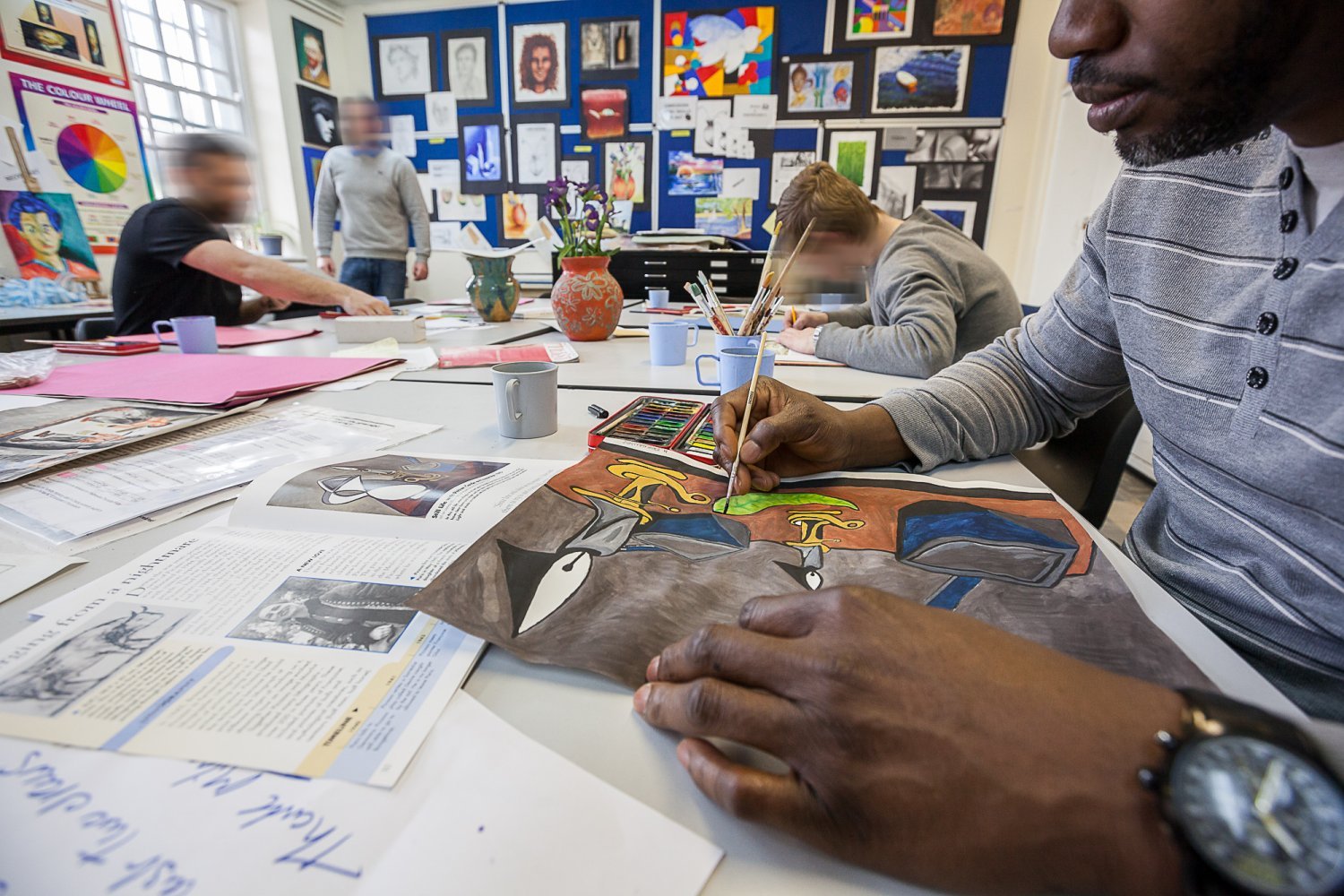
An art class at HMP Pentonville prison
Photo: Rebecca Radmore/Prisoners Education Trust 2014
Inspired to learn
The Prisoners Education Trust is celebrating 25 years of working with offenders and contributing to reduced reoffending rates, says Susannah Henty.
As any arts professional working in the community knows, art has the power to transform lives, and in a criminal justice setting it can also reduce reoffending. At Prisoners Education Trust (PET) we are celebrating 25 years of investing in people and know what a difference learning makes. We fund distance learning courses in subjects including art history, creative writing and garden design and last year also gave over 300 people grants for arts and hobby materials to create things in their own time. Whether prisoners are studying for a formal qualification or painting in their cell, we believe that any form of art can inspire people to consider other types of learning and help prisoners have a more positive outlook on the future. We have evidence from the Ministry of Justice that our work reduces reoffending by more than a quarter. A specific art-focused report found that our provision of art materials for prisoners led to a reduction in reoffending of between 0.3 and 14 percentage points.
We are on the Arts Alliance steering group and are heavily engaged in helping improve arts education policy. We asked Arts Alliance to write a piece for our monthly page in prison newspaper Inside Time on the impact of creative activities. We then received the responses from readers and learnt how art has been transformational for them. Despite this, many experience significant barriers and one man said he had been waiting ten months to join an art class: “Art needs to be wholly supportive if it is to reduce reoffending. Basic time and support is needed to help give these prisoners the chance to not reoffend.”
Art can help people develop soft skills such as patience, self-discipline, confidence and creativity and can also help people cope with mental health conditions
Art can help people develop soft skills such as patience, self-discipline, confidence and creativity and can also help people cope with mental health conditions or recover from addictions. One respondent, a Koestler award-winner, says art has helped him stop self-harming: “Art relieves me of a lot of stress and is a form of escapism. It is much better than any drug.”
Many respondents wrote about how valuable creative writing has been for them. One person who has studied the subject, now has ambitions to work in publishing and says: “Writing is a positive routine and distraction away from crime.”
Case study: Junior Smart
Education gave ex-gang member Junior Smart an opportunity to help London’s communities when he left prison. During his ten-year sentence Junior studied a degree funded by PET, gaining the motivation and skills to work and study after leaving prison. He joined the charity St Giles Trust and set up a gangs intervention project which currently helps 400 young people in 13 London boroughs. Junior has also achieved a First Class BA in Youth Work and has now begun studying for a Masters degree in Applied Criminology and Youth Justice at Middlesex University. Obtaining impressive academic credentials support Junior’s practical experience as a youth professional and are revitalising his working life.
Junior said: “Achieving a first class honours degree was incredibly profound for me. From that point onwards people took me more seriously and took notice of what I was saying and doing – I was no longer just someone with an opinion.”
Susannah Henty is Media and Public Affairs Manager at the Prisoners Education Trust.
www.prisonerseducation.org.uk
Join the Discussion
You must be logged in to post a comment.